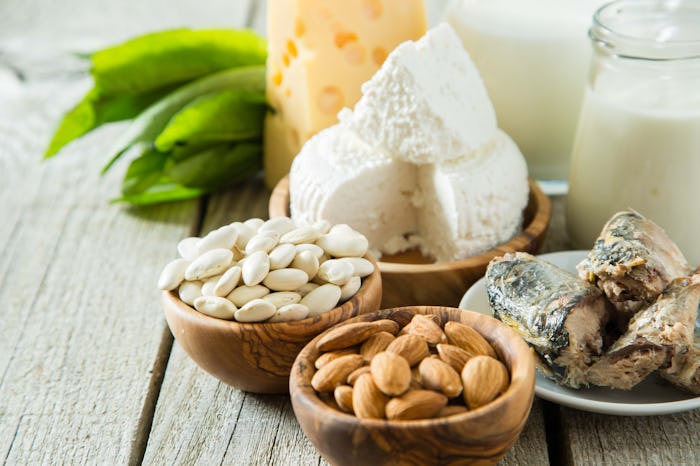Life

How A Calcium Deficiency Affects Breastfeeding
As a breastfeeding mom, you're fully aware of the toll that nursing has on your body. Similar to when you're pregnant, producing breastmilk draws on the nutrients already in your body to create the liquid gold your baby needs. And if you're not replenishing your body with necessary nutrients, you're likely to feel the side effects. Calcium is one of the nutrients needed to make breastmilk and so many mothers worry that they're not getting enough. Can you breastfeed if you have a calcium deficiency? The answer, fortunately, is that it shouldn't stop you from nursing.
According to the National Institutes of Health, although breastfeeding women do loose bone mass (about three to five percent,) they recover it quickly after weaning. Don't feel like you should shorten your breastfeeding time because of it though. The same article stated that simply increasing the amount of calcium you consume will make sure you and your growing baby both get all that you need.
Baby Center recommends that breastfeeding moms get about 1,000 milligrams of calcium each day. You likely don't need to take a calcium supplement to get your daily intake since calcium, as it's easy to get from a variety of sources. Your body will absorb it better from food sources too, so a supplement generally isn't necessary.
Besides the standard diary products, you can also get calcium from a huge variety of food sources. Health recommends collard greens, broccoli, kale, figs, oranges, fresh fish, white beans, tofu as only a few of the other ways to get calcium into your diet.
If you suspect that you're not getting enough calcium watch out for signs like brittle nails, muscle cramps, and fatigue according to University Health News. Calcium deficiency is just par for the course in the realm of breastfeeding, but luckily, if you're intentional with your diet you can ensure that both you and your baby get enough.